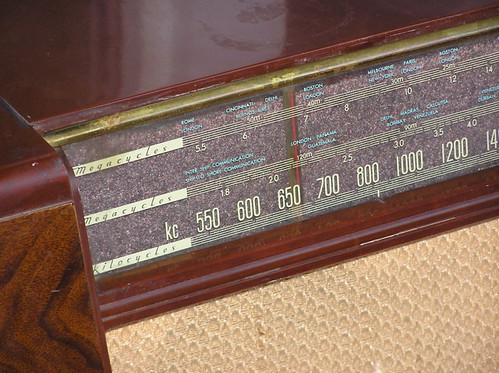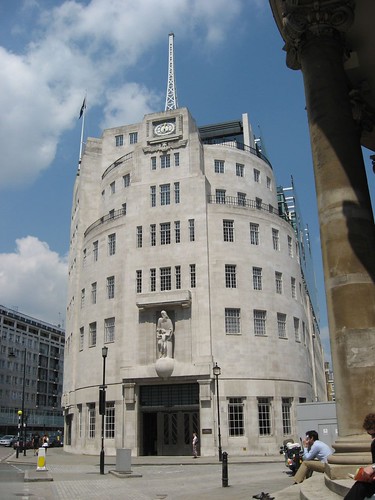I was interested and pleased to learn that This American Life will be broadcast in the UK this year, on BBC Radio 4 Extra. I have long felt that North American radio deserves a platform in the UK.
British radio is in a rut
Speech and factual radio is in a rut in the UK. It is dominated by the BBC, particularly BBC Radio 4, which has a famously conservative audience. There are not many other games in town.
BBC Radio 5 Live has a remit of rolling news and sport. It does not have space for well-crafted radio. It is live and by the seat of your pants. That can be exciting, but it can also be lacklustre.
Presenters often sound out of their depth, a result of having to cover a wide variety of topics live on air. And the station’s tendency to default to phone-ins for the malinformed as a cheap way to fill airtime becomes tiresome.
Commercial speech radio is worse. The only big player in that field is TalkSport. It began as a brave attempt at doing something different with speech radio, but over time it has come to rely exclusively on sport. There is no space for interesting factual programming here either.
Radio 4’s problem
That leaves us relying on BBC Radio 4. It has a particular sound. Or you might say it is an absence of sound. There are few jingles. There is almost no music full stop. Even a programme ostensibly dedicated to music, Desert Island Discs, only plays clips.
The station has a certain sensibility. It is gently, but distinctly, middle class and middle aged. It is safe and dependable. Rocking the boat is not what it does best.
Radio 4 often sounds formulaic. It was recently expertly parodied by Jake Yapp.
I don’t mean to knock Radio 4. It is excellent. Most of my favourite programmes are on Radio 4. I enjoy nothing more than waking up to the Today programme and driving home to PM.
But I do sometimes wish it could have more bravery, more variety, and a more colourful sound.
Innovative radio from North America
The wonder of the internet means that you can now get a bit of that variety and colour. The best radio from around the world is available as podcasts.
Every time I have listened to a podcast from North America, I have been surprised and delighted. It is not just the high quality of the output, which is indeed often superb. But what really grabs my attention is the fact that it sounds so different to anything you would hear from the UK.
Programmes like This American Life are not afraid to tell a story in a punchy, accessible way. The presentational style is relaxed, down to earth and even sometimes colloquial.
It is almost the complete opposite of the stuffy BBC English that Radio 4 feels the need to use. Radio 4 must live in fear of being accused of dumbing down. But why should making a story more accessible be something to avoid?
Also unlike Radio 4, This American Life makes heavy use of music to paint the picture. The use of music is often a key part of how story is told, just like in a film (presenter Ira Glass even describes the programme as “like little movies for radio”). You would not have music used in this creative way on a BBC programme.
In a similar vein to This American Life is Freakonomics Radio, a spin-off of the successful book. Like the book, it makes economics entertaining, surprising and even funny. Like This American Life, the host is engaging, and it makes great use of music. It is fun and thought-provoking.
Then there is Radiolab. It is an experimental programme in every sense, focusing mainly on science. It seems to deliberately set out to break the rules. It is hyperactive. Sentences are spliced together. Fluffs and giggling are left in.
It is another example of a colloquial presentational approach. Radiolab is like having stuff explained to you by your closest, maddest, funniest, most intelligent friend.
It is another programme where music plays a key role. The music could be off-putting; it is experimental and sometimes in your face. But that is in fact what makes the programme so distinctive and interesting.
In Canada, Quirks & Quarks is an award-winning science programme, and one of the most popular radio programmes in the country. It is difficult to imagine such an accessible, yet intelligent, science programme being given a decent slot on UK radio.
The BBC’s best attempt at something similar, the Naked Scientists, is not well backed by the BBC. It has poor slots on BBC local radio and overnight on Radio 5 Live. It was recently almost axed entirely. Meanwhile in Canada, Quirks & Quarks is broadcast at Saturday lunchtime on the country’s biggest station.
More North American radio needs to be heard in the UK
There are so many distinctive North American programmes out there. So I am delighted that at long last This American Life will be broadcast in the UK, even if it is only on BBC Radio 4 Extra. I hope this is just the start.
The idea that the BBC might themselves make programmes like this feels far fetched. But what strikes me about all of the North American programmes I have written about here is that they all meet the BBC’s core mission — to inform, educate and entertain — all in the one programme.
Usually BBC programmes only aim to do one of them at a time. This is an educational programme, that’s an entertainment show. North American radio teaches us that it doesn’t have to be like that.




Leave a Reply